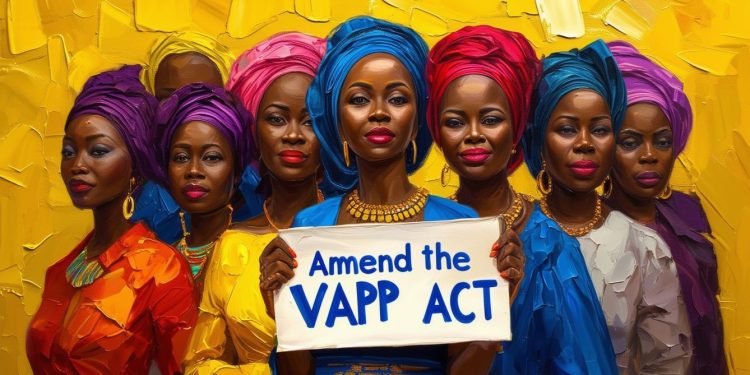‘16 Facts About Violence Against Women and Girls in Nigeria,’ a Spotlight Initiative backed by the UN, European Union, UNICEF, and the Federal Ministry of Women Affairs, reveals that nearly one in three women aged 15-49, or 31%, has experienced physical violence in Nigeria. After years of grassroots campaigns and protests, legislative measures like the Violence Against Persons Prohibition (VAPP) Act brought some hope that things would change for the better. Despite challenges such as limited jurisdiction and poor implementation, the VAPP Act registered nationwide progress, with 34 states adopting the Act.
However, recent legislative developments have raised concerns. In 2022, Senator Jibrin Isah introduced a Bill proposing to repeal the VAPP Act, arguing that the existing law had shortcomings and the need for a more comprehensive legal framework. Last month, the Repeal VAPP Act Bill passed a second reading, making the threat of a complete withdrawal of the Act more pressingly real. Concerns are now mounting among gender-based violence activists and advocates about the potential repeal and its implications argue that while a repeal would completely eliminate the existing protections and provisions, an amendment would be a better option, allowing for changes or improvements.
Priye Diri, a leading advocate and change leader with Nguvu Collective, cautions against the potential repeal of the VAPP Act, stating, “Since 2015, the VAPP Act has been a critical lifeline for women and vulnerable individuals in Nigeria. It has empowered thousands to report GBV cases, established essential support services, and made tangible progress toward gender justice. Repealing the Act would reverse these advancements, leaving survivors without necessary protections and creating exploitable gaps in the legal system.”
Senator Jibrin’s proposal aims to introduce a more holistic reform to the Act, aligning its provisions with evolving societal needs. Durga Nandini, the Co-Founder of Nguvu Collective, says, “Why repeal when you can amend? Repealing the Act will undo the decades of progress that gender rights activists in Nigeria made on addressing violence against vulnerable people and will be a major setback for democracy in the country.”
Activists believe the repeal could have serious consequences. The legislative process for a new Act could be lengthy and uncertain, potentially leaving a significant gap in legal protections for victims during the transition period.
To address these concerns, Priye Diri has launched an online petition urging Senate Committee Chairman on Judiciary, Human Rights, and Legal Matters, Mohammed Tahir Monguno, and Senator Jibrin Isah to consider amending rather than repealing the VAPP Act. The petition aims to rally support from individuals of all genders and backgrounds to ensure the continued protection and empowerment of women and vulnerable groups in Nigeria.
The petition highlights the need for legislative action that enhances existing protections without dismantling the progress made. By amending the VAPP Act, legislators can address its shortcomings while preserving the vital legal framework that supports survivors of GBV.

